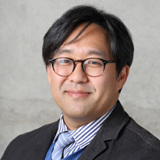Executive Summary
May 2022 holds a special meaning for ROK-U.S. relations because it marks a critical turning point in the South Korean political landscape as Seoul ushers in a new administration. From a historical standpoint, the month also marks the 140th anniversary of signing the Treaty of Amity and Commerce between Korea (also known as Joseon) and the United States. Test of time has shown that the bilateral ties have managed to persevere through thick and thin, if not strengthen. The question for the investigators of this report is how South Koreans view the past, present, and future trajectory of this relationship. Given that President Yoon Suk-yeol has already expressed his commitment to the ROK-U.S. alliance, this report serves as a timely review of the South Korean public view of the ROK-U.S. bilateral relationship.
This report utilizes a combination of data drawn from past studies and the survey conducted during March 10~13 and 17~18, 2022. The data was collected through a random digit dialing method with weighted sampling referenced according to the latest South Korean census.
The following are the key findings from this report.
• When asked what the first thing that comes to mind is when they see “the United States,” 37.3% of respondents chose “strong military.” In 2015, the percentage of answers mentioning “capitalist economy” and “strong military” were similar at 28.6% and 26.7%, respectively.
• When asked about important events in the history of ROK-U.S. relations, more than half answered security-related issues (Korean War 35.8%, formation of the ROK-U.S. alliance 23.3%).
• South Koreans showed high affinity for the United States and President Biden. The favorability of the U.S. remained above 5 (neutral) and reached a maximum of 6.85 in March 2022. President Biden’s favorability remained at 5.89, which was significantly higher than that of President Xi Jinping (1.99).
• 60.2% of South Koreans supported the idea of developing the ROK-U.S. alliance to include fundamental values, such as democracy and human rights.
• South Korean public’s confidence in the U.S. security guarantee was high. When asked if the U.S. would intervene in the event of a military conflict on the Korean Peninsula, 88.9% answered affirmatively.
• Support for the ROK-U.S. alliance was high. Since 2012, the response that the ROK-U.S. alliance is necessary never fell below 91.9%. South Korean public felt that the alliance was still necessary after unification (minimum 80%, maximum 86.3%).
• Support for USFK was 82.1%. 62.3% of respondents stated that the USFK was still necessary after unification. The support for USFK seems higher than in the past due to a rise in North Korean provocation.
• 70.2% of South Koreans supported developing indigenous nuclear weapons. This was the highest support for proliferation since 2010. 63.6% favored independent nuclear armament even if South Korea was sanctioned for violating the NPT.
• 59% of South Koreans supported the redeployment of U.S. tactical nuclear weapons in South Korea. 38.3% opposed.
• South Koreans appeared to place a high premium on the security and economic dimensions of ROK-U.S. relations. When asked about the most important issue South Korea and the U.S. should jointly manage, 37.1% named cooperation in dealing with a nuclear North Korea. 16.1% mentioned economic revitalization through trade, 14.3% picked resumption of dialogues with North Korea, 12.6% mentioned China, and about 10% named OPCON transfer, joint exercises, and other alliance related issues.
• The survey explored what South Koreans thought about the joint military exercises. Even since the Moon administration began active engagement with North Korea, ROK-U.S. joint military exercises have been scaled down to win Pyongyang’s trust. However, the survey data indicated that nearly half of all South Koreans (46.4%) wanted the military exercises to be scaled up to the level before the dialogues. 35.8% wanted to maintain the reduced or suspended status.
• 86.1% supported South Korea’s participation in the QUAD.
• 83% of respondents supported ROK-U.S.-Japan trilateral cooperation.
• 71.7% of South Koreans supported South Korea’s participation in the U.S.-led ballistic missile defense (BMD) system (22.8% opposed).
• 57.7% of South Koreans supported the deployment of additional THAAD batteries. 38.9% were opposed to this idea.
• Nearly 9 out of 10 people (88.3%) were optimistic about ROK-U.S. relations. South Koreans believed that the relationship between the two countries would improve based on trust in the alliance.
Table of Contents
Executive Summary
1. Introduction
2. Image, History, and Favorability of the United States
2.1. Image
2.2. History
2.3. Favorability
3. ROK-U.S. Alliance
3.1. Purpose and Functionality
3.2. Necessity of the ROK-U.S. Alliance
3.3. USFK
3.4. Nuclear Options
4. The Future of ROK-U.S. Relations
4.1. Agenda Priorities for ROK-U.S.
4.2. Outstanding Issues in ROK-U.S. Alliance
4.3. Outlook on ROK-U.S. Relations
5. Conclusion
Survey Methodology
Appendix I: 2022 Asan Poll Questionnaire (March 2022(a))
Appendix II: 2022 Asan Poll Questionnaire (March 2022(b))
The views expressed herein are solely those of the authors and do not reflect those of the Asan Institute for Policy Studies.

 Facebook
Facebook Twitter
Twitter

